Organizers
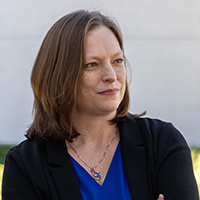 Michelle Gumz, PhD
Michelle Gumz, PhD
University of Florida
Michelle Gumz, PhD, is an associate professor of medicine and physiology at the University of Florida (UF). She also serves as an associate director for the UF Center for Integrative Cardiovascular and Metabolic Disease. She earned her PhD in biochemistry and molecular biology from UF, and after completing postdoctoral training in renal physiology, joined the faculty. Gumz and her collaborators discovered that endothelin-1 is a circadian clock target gene in the kidney. The Gumz laboratory studies the molecular circadian clock in the kidney and how it regulates endothelin signaling, blood pressure and renal function.
 Kelly Hyndman, PhD
Kelly Hyndman, PhD
University of Alabama at Birmingham
Kelly Anne Hyndman, PhD, is an assistant professor of medicine, in the Division of Nephrology, Section of Cardio-Renal Physiology and Medicine at the University of Alabama at Birmingham. Hyndman received her PhD in zoology from the University of Florida under the mentorship of David Evans, PhD. Her doctoral work focused on elucidating the evolution and physiology of the endothelin system in fishes. Hyndman also completed postdoctoral research at the Medical College of Georgia under the mentorship of Jennifer Pollock, PhD, FAPS, FAHA. Her current research focuses on determining the physiological significance of the post-translational modification called lysine acetylation in the kidney, particularly as it may affect fluid-electrolyte balance; and determining if histone deacetylase enzymes are dysfunctional in acute kidney injury leading to chronic kidney disease. Hyndman’s attended her first International Conference on Endothelin in 2005 (ET-9) and has enjoyed this conference series ever since.
Faculty Advisors
 Matthias Barton, MD*
Matthias Barton, MD*
University of Zurich
Matthias Barton, MD, FAHA, FESC, is a physician and professor of cardiology at the University of Zurich in Switzerland. His clinical and investigative focus are cardiovascular and preventive medicine, with a particular interest in coronary artery disease and heart disease in women. Barton also studies vascular factors and receptors involved in chronic non-communicable diseases, including endothelins. In the 1990s, Barton contributed to the development of endothelin receptor antagonists for the treatment of cardiovascular and kidney diseases, and recently participated in clinical trials using endothelin receptor agonists for the treatment of chronic renal disease. Barton co-chaired the Twelfth International Conference on Endothelin (ET-12) in 2011, and, with Masashi Yanagisawa, MD, PhD, published a comprehensive review on clinical studies using endothelin receptor antagonists and the role of endothelins in disease.
 Ariela Benigni, PhD*
Ariela Benigni, PhD*
Mario Negri Institute of Research
Ariela Benigni, ScD, PhD, is scientific secretary at the Bergamo and Ranica sites of the Mario Negri Institute for Pharmacological Research and Research Coordinator of the Mario Negri Institute in Italy. She has held distinguished positions internationally, including serving as a consultant for the World Health Organization and a senior fellow in obstetric medicine at the University of Oxford in the U.K. Benigni has been an associate and academic editor for several international journals and is the editor-in-chief of Nephron.
Benigni’s research team identified vasoactive and inflammatory mediators of renal damage including endothelin 1 (ET-1) in experimental and human progressive renal diseases. Her lab also proposed the combination of ET receptor antagonists with angiotensin-converting enzyme inhibitors to stop renal disease progression in diabetes, a therapeutic regimen that is now used in clinical trials. In 2019, Ariela Benigni and Donald E. Kohan, MD, PhD, FAPS, received The Fifth Tomoh Masaki Award for their work on ET-1 in kidney diseases.
 Anthony Davenport, PhD*
Anthony Davenport, PhD*
University of Cambridge
Anthony Davenport, PhD, ScD, is a professor of cardiovascular pharmacology at the University of Cambridge, Addenbrooke’s Hospital in the U.K. His research focusses on the role of endothelin (ET), ETA and ETB receptors in the human cardiovascular system and the pharmacology of selective agonists and antagonists, particularly the potential to repurpose endothelin compounds for treating conditions such as portal hypertension. Davenport’s recent research has concentrated on the action of SARS-CoV-2 on the cardiovascular system, including the endothelin pathway, anambrisentan/SGLT2 inhibitor combination to treat COVID-19 and the discovery of new compounds blocking the viral entry ACE2 receptor. He is a long- standing member of International Union of Pharmacology Committee on Receptor Nomenclature and Drug Classification and, with colleagues, has published an extensive Pharmacological Review article on endothelin.
 Pedro D’Orleans-Juste, PhD*
Pedro D’Orleans-Juste, PhD*
University of Sherbrooke
Pedro D’Orléans-Juste, PhD, FBPHS, received his PhD in pharmacology from the University of Sherbrooke in Canada. He is currently a professor in the Department of Pharmacology and Physiology at the University of Sherbrooke. D’Orléans-Juste has authored or co-authored hundreds of peer-reviewed articles book chapters and one monograph on angiotensin-converting enzyme inhibitors. His main research interests address the contribution of mast cell-derived serine proteases in the production of endothelins (ET) in cardiovascular and neurovascular diseases such as atherosclerosis, cardiac infarct and multiple sclerosis.
D’Orléans-Juste has been an associate editor for several journals, including Frontiers in Pharmacology, British Journal of Pharmacology and Vascular Pharmacology. He currently is the editor-in-chief of the Canadian Journal of Physiology and Pharmacology and was appointed a Fellow of the British Pharmacological Society in 2020. D’Orléans-Juste has served as the chairman, co-organizer and host of two International Conferences on Endothelin-1 and is one of the founding members of the ET-International Advisory Board.
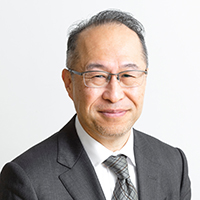 Noriaki Emoto, PhD*
Noriaki Emoto, PhD*
Kobe Pharmaceutical University
Noriaki Emoto, MD, PhD, is a professor in the Division of Cardiovascular Medicine at Kobe University Graduate School of Medicine and in the Laboratory of Clinical Pharmaceutical Science at Kobe Pharmaceutical University in Japan. He also heads the pulmonary hypertension program at Kobe University Hospital. Emoto’s major research interest is the translational research of endothelin. He co-chaired the Thirteenth (ET-13) and Sixteenth (ET-16) International Conferences on Endothelin and won the Louis N. Katz Basic Science Research Prizes of the American Heart Association in 1994 for the molecular identification and characterization of endothelin-converting enzymes, ECE-1 and ECE-2.
 Adviye Ergul, MD, PhD*
Adviye Ergul, MD, PhD*
Medical University of South Carolina
Adviye Ergul, MD, PhD, FAHA, earned her MD from The University of Istanbul Cerrahpasa Medical School in Istanbul, Turkey. After her residency in Clinical Biochemistry at Haseki Hospital in Istanbul, she earned her PhD from the University of Miami School of Medicine’s Department of Biochemistry and Molecular Biology. Ergul is a professor in the Department of Pathology & Laboratory Medicine at Ralph H. Johnson VA Medical Center in South Carolina. Since 1997, her research has been continuously funded by National Institutes of Health, The U.S. Department of Veterans Affairs, the American Heart Association and the American Diabetes Association. The Ergul laboratory works on developing innovative strategies and therapeutics for the prevention and treatment of diabetes and hypertension-associated complications, including vascular cognitive impairment and stroke.
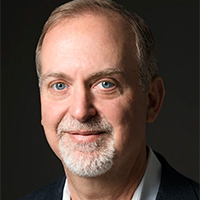 Donald Kohan, MD, PhD, FAPS*
Donald Kohan, MD, PhD, FAPS*
University of Utah
Donald E. Kohan, MD, PhD, FAPS, is a professor Emeritus in the Division of Nephrology at the University of Utah. His basic research involving endothelin examines the peptide’s autocrine and paracrine regulation of kidney function and blood pressure in health and disease. Kohan is also involved in clinical trials using endothelin receptor antagonists to slow renal functional deterioration in various forms of chronic kidney disease.
 John Pernow, MD, PhD
John Pernow, MD, PhD
Karolinska Institute
John Pernow, MD, PhD, FESC, is a professor and head of the Cardiology Unit, Department of Medicine at the Karolinska Institutet in Sweden. He is also senior consultant of cardiology and director of science and education at the Heart and Vascular Division at Karolinska University Hospital. Pernow’s research is focused on the mechanisms underlying atherosclerotic cardiovascular disease, especially cardiovascular complications associated with type 2 diabetes. He has been active in research related to endothelial biology for 20 years. Pernow has published several papers regarding the pharmacology and pathophysiological role of endothelin in cardiovascular disease and complications to diabetes.
 David Pollock, PhD, FAPS*
David Pollock, PhD, FAPS*
University of Alabama at Birmingham
David M. Pollock, PhD, FAPS, is the James A. Schafer NRTC Professor of Medicine and Director of the Cardio-Renal Physiology & Medicine Section at the University of Alabama at Birmingham (UAB). He is also co-director of the UAB Hypertension Research Center. Pollock earned his bachelor’s degree in biology and chemistry from the University of Evansville in Indiana and his PhD at the University of Cincinnati in Ohio.
Pollock’s research interests focus on high blood pressure and kidney disease. His lab—focusing on critical questions of physiological and biomedical significance that deal with hypertension and kidney disease—has uncovered how high-salt diets affect the risk of cardiovascular disease and has discovered a novel treatment for kidney failure in sickle cell disease. Pollock has held many service leadership positions, including past president of the American Physiological Society (APS) and editor-in-chief of Comprehensive Physiology.
 Ivana Vaněčková, PhD
Ivana Vaněčková, PhD
Czech Academy of Sciences
Ivana Vanĕčková, PhD, is a research professor and the head of the Department of Experimental Hypertension at the Institute of Physiology inPrague, Czech Republic. She graduated from Charles University in Prague and pursued postgraduate studies at the Institute of Physiology, Czech Academy of Sciences, where she obtained her PhD. Vanĕčková‘s work in endothelin research has a special focus on the relationships of the renin-angiotensin and endothelin systems to blood pressure regulation and the role of endothelin receptor blockade in chronic kidney disease. She is a member of the International Advisory Board of the International Conferences on Endothelin and was co-chair of the Fifteenth International Conference (ET-15).
 David Webb, MD*
David Webb, MD*
University of Edinburgh
David Webb, MD, DSc, FRCP, FRSE, is a physician and pharmacologist at the University of Edinburgh’s Queen’s Medical Research Institute and at the Royal Infirmary of Edinburgh in the U.K. He holds the Christison Chair of Therapeutics and Clinical Pharmacology and is the director of Edinburgh’s Hypertension Excellence Centre. Webb’s research is on the pathophysiology of hypertension, hypertensive renal disease, endothelial dysfunction and arterial stiffness with a particular focus on the endothelin system. Webb is a Fellow of the Royal Society of Edinburgh and U.K. Academy of Medical Sciences, was awarded the SKB and Lilly Prizes for clinical pharmacology by the British Pharmacological Society and was the fourth winner of the Tomoh Masaki Award for endothelin research. In 2020, he was awarded Commander of the British Empire (CBE) in the Queen’s Birthday Honours. He is past president of the British Pharmacological Society, honorary president of the European Association for Clinical Pharmacology and Therapeutics and recent chair of the Clinical Division of the International Union of Basic and Clinical Pharmacology (IUPHAR). Webb is the organizer of IUPHAR’s 19th World Congress for basic and clinical pharmacology in Glasgow, Scotland in 2023.
 BamBang Widyantoro, PhD
BamBang Widyantoro, PhD
Universitas Indonesia
Bambang Widyantoro, MD, PhD, is a lecturer in the Department of Cardiology and Vascular Medicine at the Faculty of Medicine Universitas Indonesia. He is also a consultant cardiologist in the National Cardiovascular Center Harapan Kita, in Jakarta, Indonesia. Widyantoro completed his PhD thesis at Kobe University Japan, when he discovered the role of endothelin-1 in molecular mechanism of heart failure and diabetic cardiomyopathy. He is also a principal investigator in the Indonesian Medical Education and Research Institute at Universitas Indonesia, with research interests including acute and critical care cardiology, hypertension, heart failure, diabetes-related cardiovascular disease and artificial intelligence in cardiology. Inspired by the passion of senior experts in endothelin field since his first attendance at the International Conference on Endothelin in 2007, Widyantoro co-chaired the ET-16 conference in 2019 with his mentor, Noriaki Emoto, MD, PhD.
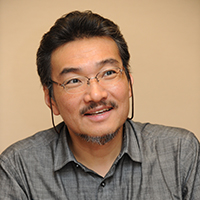 Masashi Yanagisawa, MD, PhD*
Masashi Yanagisawa, MD, PhD*
University of Tsukuba
Masashi Yanagisawa, MD, PhD, is director of the International Institute for Integrative Sleep Medicine (WPI-IIIS) at the University of Tsukuba, Japan, and an adjunct professor of molecular genetics at the University of Texas Southwestern Medical Center at Dallas (UTSW). After obtaining his MD and PhD degrees from University of Tsukuba, he started his own laboratory an Howard Hughes Medical Institute Investigator at UTSW, where he stayed for 24 years. He started his current lab in Tsukuba in 2010, and established WPI-IIIS in 2012. Yanagisawa discovered endothelins, their receptor and converting enzymes and demonstrated their roles in embryonic development. He published these findings as his PhD dissertation. Yanagisawa also discovered the neuropeptide orexin—molecules that regulate sleep and wakefulness—and its receptors. Promising therapeutic applications have emerged from both of his lines of exploratory research. Yanagisawa is a member of the U.S. National Academy of Sciences. His awards include the Medal with Purple Ribbon, Asahi Prize, Keio Medical Science Prize, and has been recognized as a Person of Cultural Merit. He is a member of the International Advisory Board of the International Conferences on Endothelin, and has been honorary chair of the International Conference on Endothelin since ET-10 in 2007.
*members of the Endothelin International Advisory Board
Trainee Advisory Board
 Bryan Becker, PhD
Bryan Becker, PhD
University of Alabama at Birmingham
Bryan Becker, PhD, completed his doctorate in physiology from the University of Nebraska Medical School. His research involved investigating neuronal control of cardiovascular function during heart failure. Becker’s current research at the University of Alabama at Birmingham examines how the endothelin system influences autonomic control of blood pressure, with a particular interest in renal sensory nerve function with a high-salt diet. His research interests include circadian control of blood pressure and baroreflex function. Becker also teaches and mentors undergraduate, graduate and professional students.
 Hannah Costello, PhD
Hannah Costello, PhD
University of Florida
Hannah M. Costello, PhD, is a postdoctoral associate in the lab of Michelle L. Gumz, PhD, at the University of Florida. She received her PhD in hypertension and renal physiology from the University of Edinburgh in the U.K. Costello’s research team investigated the relationship between salt and glucocorticoids, and the implications on salt-sensitive hypertension. In early 2021, she joined the Gumz lab to investigate the role of the circadian clock in the kidney and how it regulates blood pressure and renal function.
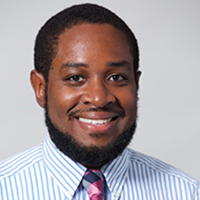 Jermaine Johnston, PhD
Jermaine Johnston, PhD
University of Florida
Jermaine Johnston, PhD, is a postdoctoral fellow at the University of Florida in the Division of Nephrology, under the mentorship of Charles Wingo, MD, and Michelle Gumz, PhD. Johnston received his PhD at the University of Alabama at Birmingham, studying endothelin-1 and the diurnal regulation of sodium excretion. Johnston is studying the mechanisms through which the HKα1 subunit of H+,K+-ATPases in the distal nephron regulate the epithelial sodium channel in the control of electrolyte excretion. Johnston was awarded a 2021 American Heart Association Research Supplement to Promote Diversity in Science.

